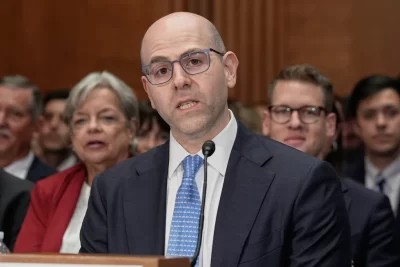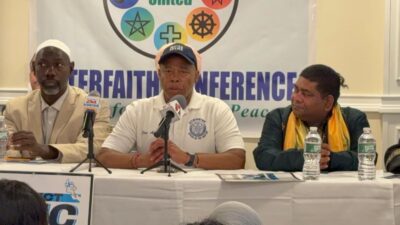
VANIMO, Papua New Guinea— Pope Francis traveled to the remote jungles of Papua New Guinea on Sunday to celebrate the Catholic Church of the peripheries, bringing with him a ton of medicine, musical instruments and a message of love for the people who live there.
Francis flew aboard a Royal Australian Air Force C-130 transport plane from Port Moresby to Vanimo, on the northwest coast of the South Pacific nation. There, Francis met with the local Catholic community and the missionaries from his native Argentina who have been ministering to them.
A crowd of an estimated 20,000 people gathered on the field in front of the Vanimo cathedral singing and dancing when Francis arrived, and he promptly put on a feathered headdress that had been presented to him.
In remarks from a raised stage, Francis praised the church workers who go out to try to spread the faith. But he urged the faithful to work closer to home at being good to one another and putting an end to the tribal rivalries and violence that are a regular part of the culture in Papua New Guinea.
He urged them to be like an orchestra, so that all members of the community come together harmoniously to overcome rivalries.
Doing so, he said, would help to end personal, family and tribal divisions “to drive out fear, superstition and magic from people’s hearts, to put an end to destructive behaviors such as violence, infidelity, exploitation, alcohol and drug abuse, evils which imprison and take away the happiness of so many of our brothers and sisters, even in this country.”
It was a reference to the tribal violence over land and other disputes that have long characterized the country’s culture but have grown more lethal in recent years. Francis arrived in Papua New Guinea to urge an end to the violence, including gender-based violence, and for a sense of civic responsibility and cooperation to prevail.
Francis had started the day with a Mass before an estimated 35,000 people at the stadium in the capital, Port Moresby. Dancers in grass skirts and feathered headdresses performed to traditional drum beats as priests in green vestments processed up onto the altar.
In his homily, Francis told the crowd that they may well feel themselves distant from both their faith and the institutional church, but that God was near to them.
“You who live on this large island in the Pacific Ocean may sometimes have thought of yourselves as a far away and distant land, situated at the edge of the world,” Francis said. “Yet … today the Lord wants to draw near to you, to break down distances, to let you know that you are at the center of his heart and that each one of you is important to him.”
Francis has long prioritized the church on the “peripheries,” saying it is actually more important than the center of the institutional church. In keeping with that philosophy, Francis has largely shunned foreign trips to European capitals, preferring instead far-flung communities where Catholics are often a minority.
Vanimo, population 11,000, certainly fits the bill of being remote. Located near Papua New Guinea’s border with Indonesia, where the jungle meets the sea, the coastal city is perhaps best known as a surfing destination.
Francis, history’s first Latin American pope, has also had a special affinity for the work of Catholic missionaries. As a young Argentine Jesuit, he had hoped to serve as a missionary in Japan but was prevented from going because of his poor health.
Now as pope, he has often held up missionaries as models for the church, especially those who have sacrificed to bring the faith to far-away places.
The Rev. Martin Prado, an Argentine missionary of the Institute of the Incarnate Word religious order, is credited with having invited the pope to come to Vanimo.
As he waited for Francis to arrive Sunday, he recounted for reporters the “crazy” story of how he accompanied a group of Vanimo parishioners to Rome in 2019, and ended up scoring an audience with the pope after his parishioners insisted that they wanted to give him some gifts.



